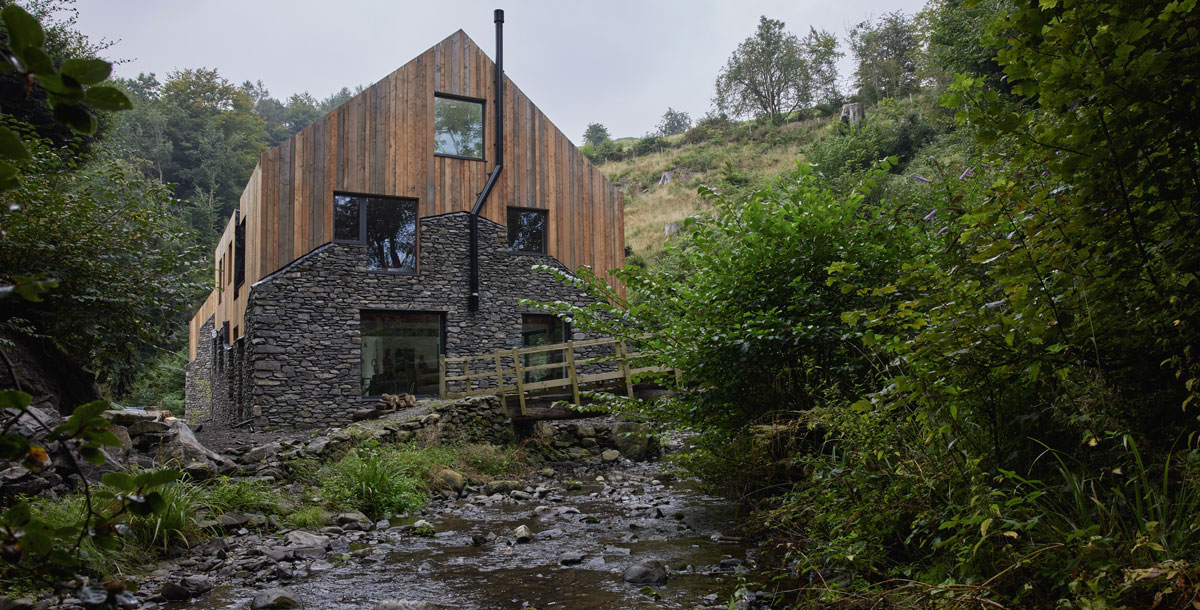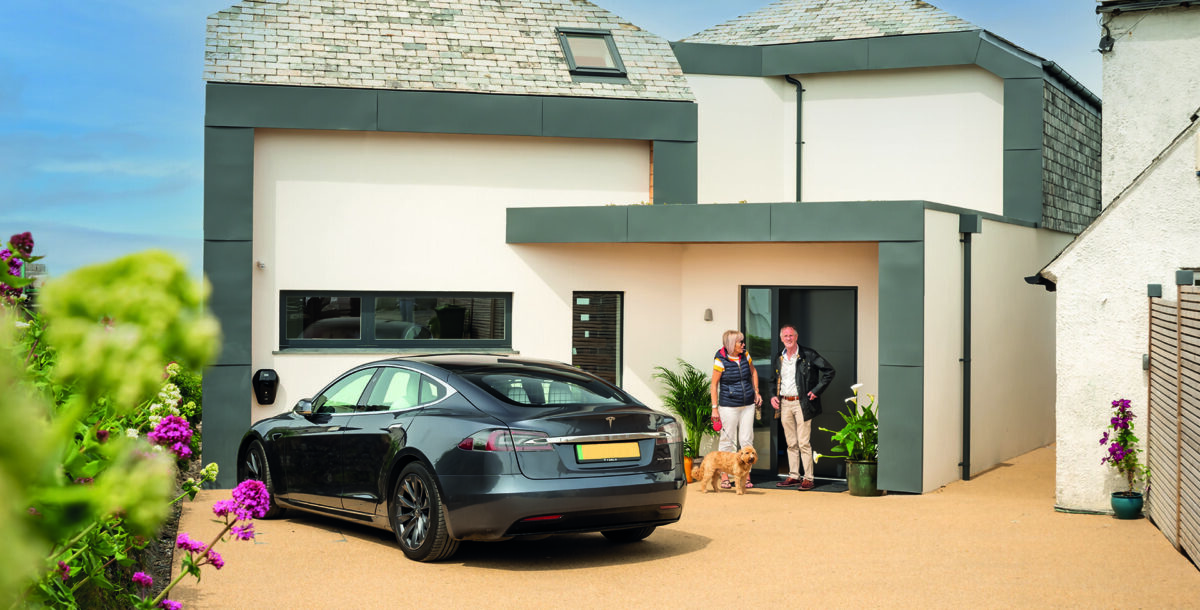Finding the right property to renovate
If you're looking for a property to transform, this guide will help you find the ideal project
Spotting the perfect property to renovate is a dream come true for prospective Grand Designers. Not only could the right project provide you with the chance to create a stylish home that suits your taste and needs, but it could be an excellent financial investment too.
But how do you find a viable development, and how can you make sure you’re not buying a money pit?
First is finding a property with potential. If you have an idea of the general area where you’d like to live, go and visit the local estate agents. Meet them in person to build a rapport and let them know the type of home you’re looking for – as well as giving them an indication of how much work you’d be willing to invest in it.
Many agents will have a selection of seemingly unattractive properties on their books; you may not spot them in their high-street windows or in advertisements, but that’s because they want to promote their highest value wares rather than bargain opportunities.
General property websites are a good port of call, too. While you won’t be able to search by type, you will be able to filter by price to give you a guide to the value of homes in the area. Look for houses on specialist websites as well, such as Property with Potential, which features only older properties in need of updating.
If you’re feeling brave enough, you should consider property auctions. They are a prime source of repossessions and run-down properties that haven’t been snapped up on the open market.
While you can bag yourself a great deal, do bear in mind that if you are buying this way, you’ll need to have the funds ready for purchase almost immediately. Be strict with your bids and don’t get carried away. Know the price you can afford and stick to that limit.
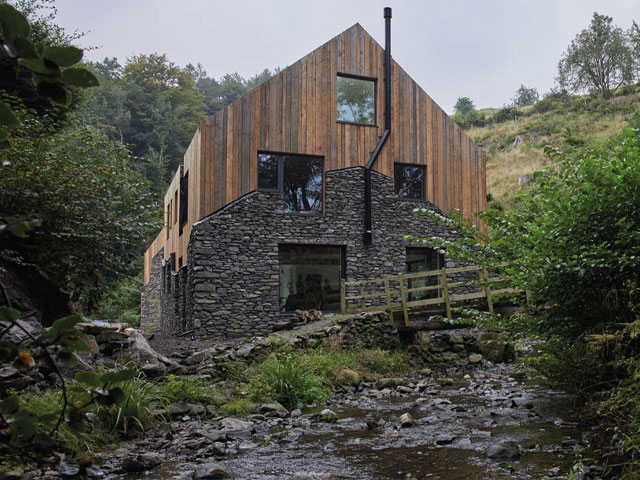
Photo: Andy Haslam
Design Details
One of the key benefits of transforming an existing building into the home you want is that you’ll be able to keep the elements that add character and interest while altering those that don’t suit your taste or lifestyle.
Permitted development rights – legislation that allows you to make certain extensions and changes without planning permission – mean that adding extra space and reorganising a layout is easier than ever before.
Whether you want to create open flowing zones, make the most of private spaces or convert a loft or basement, clever renovating can make it possible.
To ensure that you get the very best out of your development, it’s a good idea to find an architect or design professional to help realise your vision. Try searching the websites of the Royal Institute of British Architects and the Chartered Institute of Architectural Technologists to find a firm close to you.
Recommendation is an important tool, too, so if you spot a well-designed home, don’t be afraid to ask who was involved.
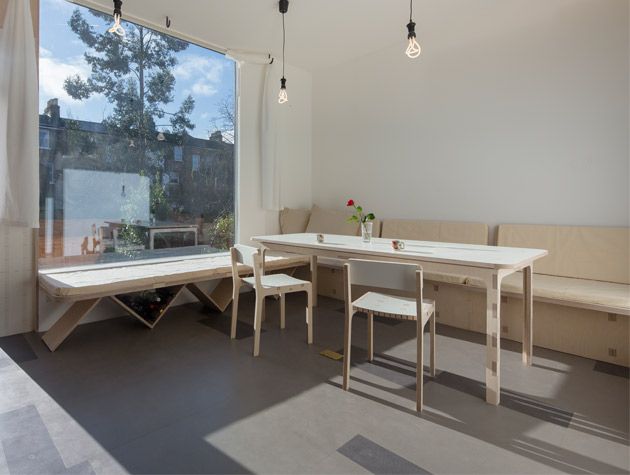
Photo: Tsuruta Architects
Key Checks
When you find a property you want, there are several things to consider before putting in an offer. First, think about how long it has been up for sale. If it’s been on the market for months, you need to question why.
This could be a signal of underlying issues that would make renovation hard, or it could be that modernising the house just isn’t worth it for whatever reason.
However, it’s not all doom and gloom, as appearances can be deceptive. Many homes that look shabby may not actually be in a poor physical condition. To assess the finer details, visit the building with a professional – an architect or general builder – who can give you an idea of what you are letting yourself in for.
Plus at this stage, a designer will be able to tell you if you can genuinely upgrade the property into the home you want and how easy it will be to add extensions or change the internal layout.
Next on the list is employing a surveyor. As well as providing a formal report, they’ll be able to give you their opinion and explain any jargon that may be confusing. Some elements listed on their report, such as damp or signs of asbestos, may not be unusual in older properties nor as serious as they sound.
On the other hand, if major issues, such as subsidence, are uncovered, they will be able to explain what’s required to remedy the problem and be a good judge of whether it will be prohibitively expensive.
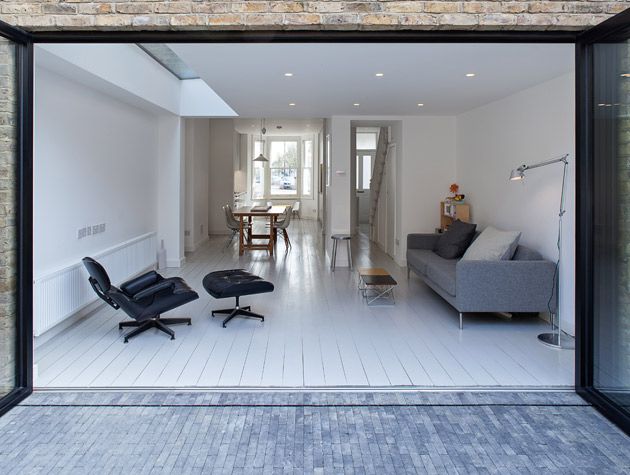
Photo: Russian for Fish
Finance Basics
To calculate how much you have to spend, assess your works; what will structural repairs cost, for example, or what’s the price of adding a rear extension? With this in mind, you must set a budget as soon as possible. Key to this is having firm plans in place before you put the job out to tender.
It’s easier and cheaper to include a window, wall or design feature on paper than during construction. Tradesmen are well within their rights to charge you for any extras that you haven’t specified at the outset.
If you’re trying to keep costs to a minimum, you should do as much work as possible yourself. Use professionals to take on more complicated tasks, but do try turning your hand to decorating and so on.
If you want to learn other skills, check out resources such as London’s Goodlife Centre, which teaches courses on plumbing, flooring and basic electrics, or The DIY School in Manchester, where you can take a general home improvement course.
Larger DIY chains, including Homebase and B&Q, run free learning workshops, so it’s worth researching what they have to offer.
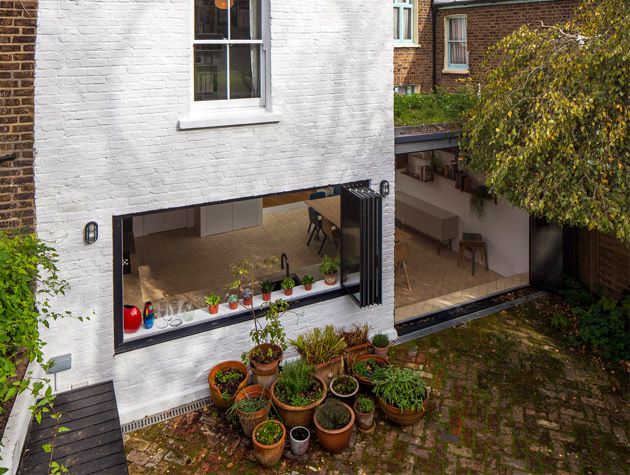
Photo: Studio 30 Architects

